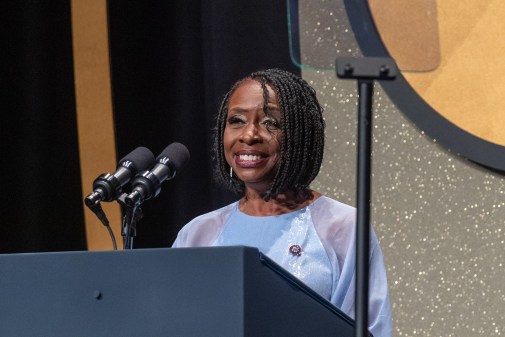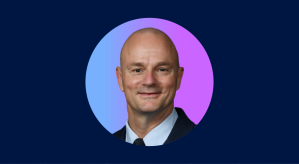Report: Women’s interest in cyber careers falling sharply
The gap between the number of men and women who are interested in cybersecurity careers is more than five times larger than it was a year ago, according to a new study out Monday.
A report released by defense contractor Raytheon and the National Cyber Security Alliance found that 40 percent of young American men reported they were interested in cybersecurity careers, while only 23 percent of young American women said the same — a gap of 17 percent. A year ago, 37 percent of women and 40 percent of men said they were interested in cyber careers.
“That’s very concerning … Half of our population is getting less and less interested in this career path,” said Jack Harrington, vice president of cybersecurity and special missions at Raytheon, during an event to unveil the report. “We have got to understand why.”
Researchers also found that while many young adults might be interested in cyber careers, they may lack the resources to pursue them. About 62 percent of young people worldwide said no teacher or guidance counselor broached the idea of pursuing a cybersecurity career, and the number was higher (77 percent) among women alone. Meanwhile, 62 percent of men and 75 percent of women said their high schools did not provide computer classes that would help them pursue a cybersecurity career.
At the same time, the report found a lack of awareness about cybersecurity in general. Attendees at the event gasped and chuckled when Harrington announced that about two-thirds of young adults surveyed hadn’t heard about cyberattacks in the news in the last year. This, after the government was rocked by revelations over the summer that more than 20 million people had their records stolen in a breach of the Office of Personnel Management’s systems and Sony Pictures was hacked last Thanksgiving.
For the report, Zogby Analytics researchers surveyed 4,000 young adults ages 18 to 26 across the globe in July and August. The U.S. data, based on just over 1,000 respondents has a margin of error of plus or minus 3.2 percentage points.
The results of the report shed light on an industry desperate to bring in more qualified workers, particularly in the public sector where, as a Rand Corp. report from last year explains, “wages and benefits are less flexible.”
It’s not the first study to show gender disparities in the field, however. Last month, a report found that only 10 percent of information security professionals are women.
During the new report’s launch event, a panel of industry experts highlighted the need to expose young people, and their parents, to cybersecurity careers early on. They underscored the need to recruit cybersecurity professionals from fields outside computer science, including psychology, criminal justice and law, and the potential of working with community colleges to offer cyber training programs.
Several talked about the importance of innovative partnerships to detect and cultivate talent. Col. Todd Glanzer, chief of cyberspace force development in the Air Force’s Office of Information Dominance, said his branch is working with the University of Maryland to see whether tests that can show aptitude for foreign language retention could be used to identify cyber workforce talent.
“They may not have been exposed to it in high school … but how can we give somebody an assessment and say they may have what it takes to do well in this area?” he said.
Speaking to FedScoop after the event, Ben Scribner, program director of the Department of Homeland Security’s National Cybersecurity Professionalization and Workforce Development Program, said he wasn’t surprised by the survey’s results.
Cybersecurity, he said, is a new field, whose career pathways and standards may not seem clearly defined. To address that, DHS has worked with other members of the private and public sectors to develop a framework that could help employers standardize cyber jobs and could allow colleges to tailor their curriculums for those positions. He also touted DHS’ National Initiative for Cybersecurity Careers and Studies portal, which he said could help employers learn how to retain and recruit their IT workforce.
Scribner echoed comments of some of his fellow panelists, who said recruiters should highlight the exciting aspects of the cybersecurity field, not just the potential of cyber workers to earn a high salary. That’s especially true for those trying to fill federal government positions, he said.
“People don’t come to the federal government because they get paid the most amount of money. They come because of patriotism. They come to it because they want to do something exciting,” he said.
Too often, cybersecurity is portrayed in the media as someone typing at a computer alone in a dark room, he said.
“The people who come to Homeland Security, they are doing exciting work because the level of threat that they’re preventing,” he said. “It’s a really exciting job. And I don’t think that’s talked about.”






